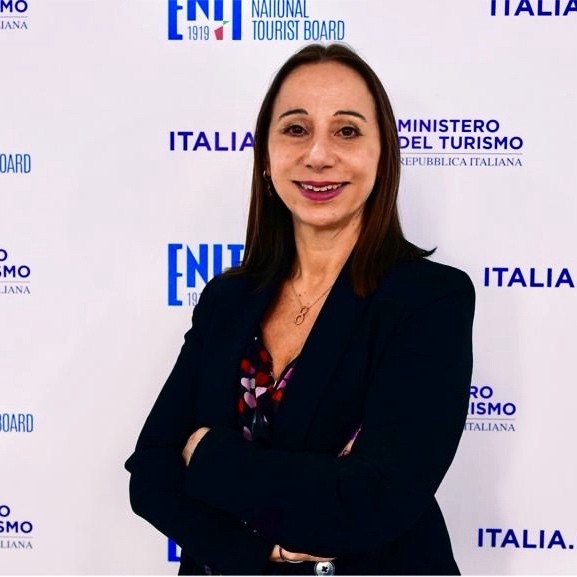
As part of its event “Europa Viva 24 in Madrid”, the ECR Party organised a panel on tourism looking at Judeo-Christian landmarks of Europe. The discussion was moderated in Italian, Spanish and English by Prof. Alessandra Priante, president of the Italian National Tourism Agency (ENIT).
The first speaker was Ambassador Andrzej Sadoś, former Permanent Representative to the European Union on behalf of Poland. He outlined that during his six-year tenure in the Council of the European Union, he always aimed at preserving the common values recognised in the European Union, including the Christian-Judaic landmark traditions such as the Cathedral of Saint Mary in Toledo.
Gianlucca Caramanna, member of the Italian Parliament on behalf of Fratelli d’Italia and an expert on tourism, including religious tourism, recalled the great touristy offer existing in Spain, Italy and throughout Europe. This is the reason why the Meloni Government, from its very beginning, has decided to put tourism at the centre of its policy.
In quantitative terms, tourism amounts to 13% of Italy’s GDP, and religious tourism as much as 2%. In fact, religion goes hand in hand with culture, as one can admire in the splendid city of Rome, with the Papal Basilica of St. Peter and many other monuments expressing beauty throughout the ages.
MP Caramanna added that one cannot conceive Europe without its Christian roots, as Cardinal Angelo Bagnasco, former president of the Council of European Bishops’ Conferences, pointed out when analysing the decisive role of Christendom with regards to the European Union.
The speaker brought us back to his own childhood, when Rome’s public schools would require a cross in both classrooms and corridors, in order to express and promote our identity. Additionally, prayer was included in the afternoon’s daily schedule, not as a form of imposition, but as part of an education aligned with our tradition.
On top of Santiago, Lourdes, and Medjugorje as well-known pilgrimages, Mr. Caramanna explained that the Meloni Government is promoting other forgotten Christian ways, such as the Via Lauretana between the Basilica della Santa Casa in Loreto and the Basilica of Saint Francis in Assisi.
He also stressed the role of Saint Benedict as Patron on Europe, an item not to be forgotten in 2025’s Jubilee Pilgrimage to Rome under the motto “pilgrims of Faith”, which will attract many pilgrims and tourists alike to the Eternal City.
MP Patricia Rueda from Málaga explained that Spain receives 85 million tourists annually. Many of them look for the sun, but this needs to be well planned so that it does not disturb the local population, while at the same time generating employment and wealth.
As well as in the Italian case, tourism accounts for 13% of Spain’s GDP. This is the reason why the Spanish radical left’s proposals to undermine tourism do not make sense. Religious and cultural tourism can help deviate touristy offers from historical centres into the countryside, without damaging the sector. She refused the eco-tax proposed by both the Socialist and the Popular groups, as an obstacle for people visiting us and therefore a hindrance to business.
Mr. Caramanna offered a best practice in Italy to solve the problem of under populated areas in a Member state. Here, the Meloni Government is promoting and financing visits to those areas and particularly from people living in third countries (Argentina, Canada, USA, Brazil) with an Italian origin. Many younger generations, even some of them non-Italian speakers anymore, feel interested to visit the root places of their grandparents.
Ambassador Sadoś finished his contribution by calling voters not to forget the past, identified through a Christian European common denominator. MP Santos also appealed to the citizen’s responsibility on 9 June, where ECR members would help simplify tourism regulation in order to enhance prosperity. Finally, MP Caramanna invited voters to change the course of the European Union to defend its patrimony, not least its traditional gastronomy rather than the synthetic meat or insects promoted by other parties.
Source of image: LinkedIn



 Subscribe
Subscribe